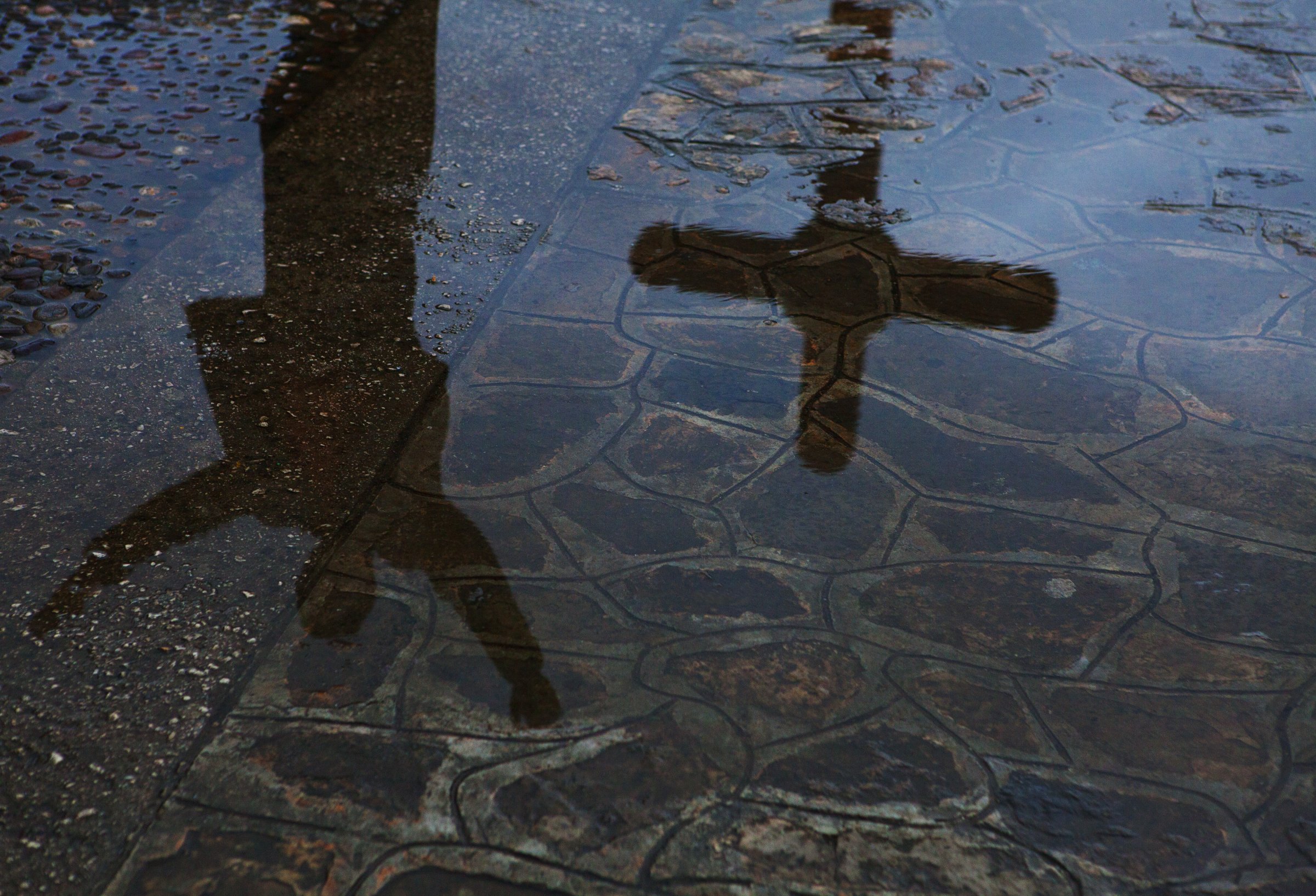
In January, Pope Francis held a private audience with a transgender man from Spain. After learning that Diego Neria Lejárraga’s parish and local church officials rejected him after his transition from female to male, Pope Francis spoke to him several times on the phone before inviting him to Rome. When Diego asked if there was room for him in God’s church, Pope Francis embraced him.
Under Francis’s inclusive leadership, Lejárraga now has more hope for his community’s future. As a transgender Catholic, I agree.
The Catholic Church has been a consistent presence in my life. I grew up in St. Louis, one of the most vibrant Catholic cities in the nation. Although I wasn’t baptized at birth, nor raised in the faith, I still encountered the Church at several points during my youth.
But, it was during my college years that my acquaintance with the faith grew into a friendship. After attending Mass almost every Sunday during my freshman year at a local Catholic university, Fontbonne, I felt called by God to receive the Easter Sacraments and to join the Church.
This wasn’t the only transition I underwent in college. I came to school as Jes, a compassionate, but at times confused, young female searching for a way through school. I left Fontbonne as Nick, a young Catholic man who was more confident going out into the world.
During my transition from female to male, I was often confused with and mad at God. I didn’t understand why I had been born in the wrong body. This anger and confusion with how God had made me seeped into my daily life. I often wasn’t present to my friends and their needs, and I lost a sense of who and what mattered to me.
During this struggle, I closed myself off to God. But God never tired of pursuing me, and eventually we rekindled our relationship. It was at this point that I relearned one of the basic truths of our faith: that God created me, that God loves me, and that God accompanies me. The Lord already knew that I wasn’t accepting a part of myself, but once I told God how broken I felt, he showed me how loved I was.
Admittedly, the Catholic Church isn’t historically known as the most welcoming place for the LGBT community. But I found many Catholics who continued to love me and walk beside me in my journey.
My best friend and current partner—who grew up Catholic—was one of the first friends I came out to. I believe that she spoke the words that the Lord needed me to hear: that God made us to be who we are, and if we aren’t being true to ourselves, then we aren’t being true to God. Her acceptance was a testament to God’s unfailing love, and it allowed me to be true to myself.
As I took the steps to come out to my peers, I was slowly gaining the courage I needed to come out to my family. But I was still especially scared to come out to my grandma, who had raised both of her boys in a traditional Catholic home. Much to my surprise, she already knew what I struggled to say, and made it clear that her love for me was without condition. With tears in her eyes, she told me that male or female, I was hers and had a home in her heart.
Besides my family, my biggest supporters came from the community I formed during college. A Catholic university, Fontbonne allowed me to become a leader in an inclusive and diverse environment.
As the student body president, I interacted with a lot of people on campus, which created a very difficult coming out process. I was afraid that many of those I befriended or worked with at Fontbonne would reject me. Luckily, that wasn’t the case at all. Even the president of the college accepted and welcomed my transition.
Sadly, this isn’t always true. Too often, Christians do not make a home for the LGBT community. For every Fontbonne, there are examples of social exclusion from the Church. Until the entire Church is willing to be as inclusive as Fontbonne—and Pope Francis—transgender people will continue to experience the pain of being excluded.
Now is the time to make Pope Francis’s dream our lived reality. As he recently tweeted, “Let the Church always be a place of mercy and hope, where everyone is welcomed, loved and forgiven.”
Read next: This Transgender Teen Is the New Face of Clean & Clear
More Must-Reads from TIME
- Why Trump’s Message Worked on Latino Men
- What Trump’s Win Could Mean for Housing
- The 100 Must-Read Books of 2024
- Sleep Doctors Share the 1 Tip That’s Changed Their Lives
- Column: Let’s Bring Back Romance
- What It’s Like to Have Long COVID As a Kid
- FX’s Say Nothing Is the Must-Watch Political Thriller of 2024
- Merle Bombardieri Is Helping People Make the Baby Decision
Contact us at letters@time.com